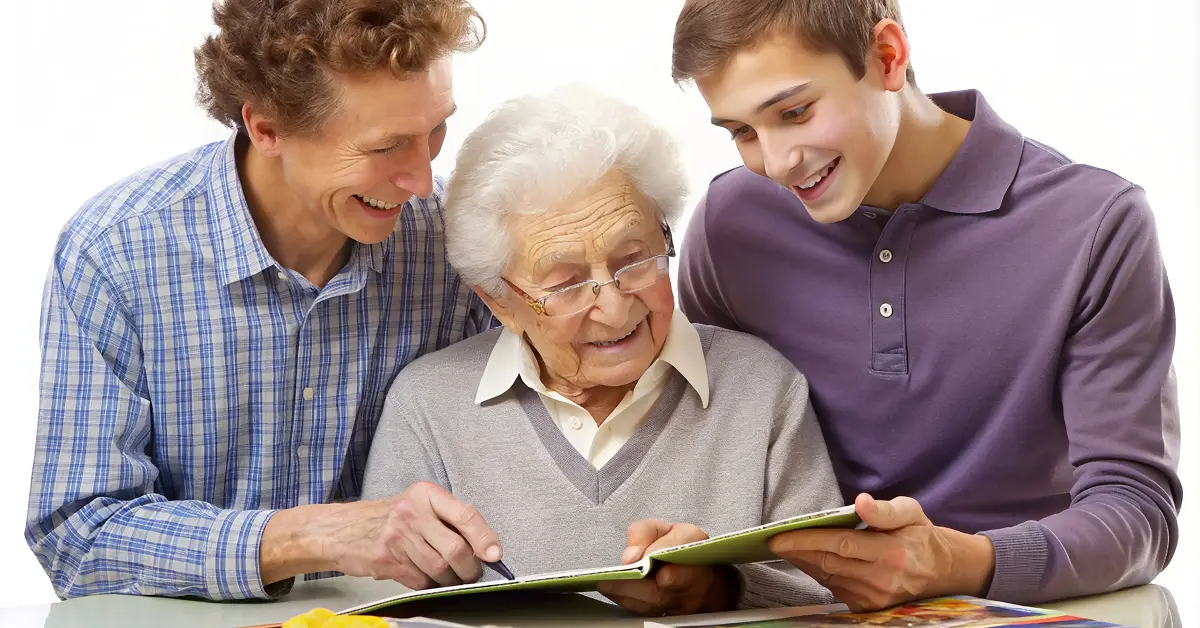In India, family values are deeply ingrained, and caring for ageing Parent Caregiver is often seen as a moral and emotional responsibility. But with the fast pace of modern life, dual-income households, and long working hours, managing elderly care can become an overwhelming challenge. Balancing your job, kids, personal life, and ageing parents’ needs is no easy feat.
That’s where a professional caregiver steps in — a trained individual who can support, assist, and care for your elderly loved ones in a compassionate and skilled manner. In this blog, we’ll explore how caregivers can lighten the load of eldercare, the benefits they bring, and how to make informed decisions when choosing one.
The Rising Need for Elderly Care in Indian Homes
India’s population is ageing rapidly. With improved healthcare and living standards, more Indians are living longer. According to the 2021 census projections, nearly 10% of India’s population is over the age of 60, and this number is expected to double by 2050.
As people age, they may face a variety of health and mobility issues — from arthritis and diabetes to dementia and heart disease. Simple tasks like bathing, walking, eating, or remembering medication become difficult. Many elderly parents also deal with loneliness, anxiety, or depression, especially if they live alone or are separated from their children.
This situation calls for structured, professional, and empathetic care — something that trained caregivers can offer at home.
What Does a Caregiver Do?
A caregiver is someone trained to assist elderly individuals in their daily lives while ensuring their physical and emotional wellbeing. Their responsibilities may vary depending on the health condition of the senior, but generally include:
- Assistance with Daily Activities: Helping with bathing, dressing, grooming, and toileting.
- Medication Management: Ensuring medicines are taken on time and as prescribed.
- Mobility Support: Helping elders walk, use wheelchairs, or preventing falls.
- Meal Preparation: Preparing nutritious meals based on dietary requirements.
- Companionship: Offering emotional support, having conversations, and engaging in light activities.
- Medical Monitoring: Keeping an eye on vital signs and reporting health issues to family or doctors.
- Household Help: Light housekeeping tasks such as cleaning, laundry, or errands.
How a Caregiver Lightens the Load
Reduces Physical Stress
Taking care of an elderly parent can be physically draining, especially if they are bedridden or require constant attention. A caregiver can handle the heavy lifting — literally and figuratively — giving you much-needed rest and energy for your work and personal life.
Provides Professional Health Monitoring
Caregivers often have basic medical training. They can recognize early signs of illness, manage chronic conditions, and ensure doctors’ instructions are followed. This is crucial if your parents suffer from ailments like Alzheimer’s, Parkinson’s, or post-stroke complications.
Offers Emotional Support to the Elderly
Many seniors face emotional distress due to loneliness, memory loss, or feeling like a burden. A caregiver can become a trusted companion, provide emotional reassurance, and reduce isolation.
Gives Family Members Peace of Mind
When you hire a caregiver, you’re not abandoning your responsibilities — you’re enhancing your parents' quality of life. You can go to work or travel knowing your parents are in safe, trained hands.
Improves Quality of Life for Everyone
With a caregiver, elderly parents can live more independently and with dignity. At the same time, children get to maintain a healthier relationship with them, focusing on love rather than only logistics and care.
Choosing the Right Caregiver for Your Parents

Hiring the right caregiver can make a world of difference. Here are a few essential tips to guide you:
- Assess Needs: Before hiring, make a list of tasks your parents need help with — medical, mobility, mental health, or companionship.
- Verify Background: Always opt for caregivers from reputable agencies. Check for background verification, experience, and training.
- Observe Soft Skills: Elderly care is not just about skill but heart. Look for patience, respect, and compassion.
- Trial Period: Request a trial period of a few days to see how well your parent and the caregiver adjust.
- Legal and Financial Clarity: Document pay, duties, hours, and leaves clearly before starting.
When to Hire a Caregiver: Signs to Watch For
Here are some signs that suggest it’s time to consider professional caregiving support:
- Your parent is falling frequently or has mobility issues.
- You notice weight loss due to skipped meals or poor nutrition.
- Medication schedules are being forgotten.
- There’s increased forgetfulness, confusion, or aggression.
- Hygiene and cleanliness are neglected.
- You feel constantly exhausted, guilty, or overwhelmed managing everything alone.
In-Home Caregiver vs Old Age Homes
Many Indians hesitate to send parents to old age homes due to emotional and cultural reasons. Thankfully, in-home caregivers are a viable alternative, allowing seniors to age gracefully at home — a familiar and comfortable environment — while receiving the professional care they need.
In-home care preserves family bonds, respects traditional values, and offers a blend of emotional and physical support.
Government & Private Support in India
The Indian government has introduced schemes like the National Programme for Health Care of the Elderly (NPHCE), Senior Citizen Health Insurance Scheme, and Vayoshreshtha Samman, among others.
There are also many private organisations and startups now offering trained in-home caregiver services across metro cities like Delhi, Mumbai, Bengaluru, Hyderabad, and even tier-2 towns like Indore, Coimbatore, or Lucknow.
Conclusion: Caring with Compassion
Caring for ageing parents is one of the most honourable and loving acts we can perform. But it doesn’t have to mean doing it all alone. A trained caregiver can offer your parents the physical and emotional support they need, while allowing you to focus on work, family, and personal well-being.
Remember, seeking help is not a sign of weakness — it’s a smart, responsible choice that ensures dignity for your elders and peace for you.
Tags: Elderly Care India, In-home Caregivers, Ageing Parents, Caregiver Services, Senior Citizen Support India, Home Health Aide India, Emotional Support for Elders
Contents
- The Rising Need for Elderly Care in Indian Homes
- What Does a Caregiver Do?
- How a Caregiver Lightens the Load
- Choosing the Right Caregiver for Your Parents
- When to Hire a Caregiver: Signs to Watch For
- In-Home Caregiver vs Old Age Homes
- Government & Private Support in India
- Conclusion: Caring with Compassion
Our 24*7 services
Latest Posts
- What Is Respite Care and Why Is It Important
- Affordable home care for senior citizens in India
- Caring for Seniors with Dementia or Alzheimer's at Home
- Senior Caregiving A Guide for Every Family
- How to Write a Caregiver Resume That Gets You Hired
- How Care After Hospital Discharge Speeds Up Recovery at Home
- How to Get Home Health Care for Seniors Through Medicare
- What Does a Senior Citizen Caregiver Really Do at Home
- How to Care for Elderly Parents with Alzheimer’s or Dementia
- How to Get 24-Hour Care for Seniors at Home


